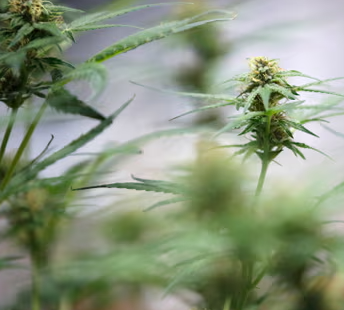
A recent study, conducted by the Cannabis University of Sydney and published in the American Journal of Psychiatry, challenges the notion that cannabis serves as an effective long-term solution for reducing opioid use. The study, spanning two decades and involving 615 individuals with heroin dependence, contradicts claims that canna could alleviate opioid use disorders by aiding in pain management or withdrawal symptom control.
READ: Las Vegas Buffet Boom Goes Bust: Shocking Reasons Behind the Disappearance Revealed!
Dr. Jack Wilson, the lead author from the Matilda Centre for Research in Mental Health and Substance Use, emphasized that this research represents the most extensive examination of the relationship between cannabis and illicit opioid use to date. Despite initial hopes, the study found no evidence supporting the idea that cannabis contributes to a reduction in long-term opioid use.
Cannabis
The researchers began their investigation in 2001, recruiting individuals with heroin dependence in Australia, and conducted follow-up interviews over six occasions spanning 20 years. Approximately two-thirds of the participants were using cannabis at the study’s initiation, a reflection of its prevalence among those with opioid-use dependence. However, over the subsequent two decades, there was no clear correlation between cannabis use and improved outcomes for opioid-dependent individuals.
Dr. Wilson stressed the significance of these findings, cautioning against relying on cannabis as a solution to address problematic opioid use, especially in light of the increasing global trend toward cannabis legalization and recognition as a therapeutic product. Opioid misuse poses a substantial health burden, with significant mortality and morbidity rates in Australia and North America.
The study’s cohort represented typical characteristics of individuals with opioid use disorders, including poor physical and mental health, unstable housing, a higher likelihood of being male, and involvement in various treatment settings. Dr. Wilson recommended holistic, evidence-based approaches for addressing opioid use disorders, considering physical, psychological, and pharmacotherapy therapies.
Despite the study’s results, Dr. Wilson advised against drawing conclusions about cannabis’s efficacy as a treatment for pain. Previous studies on this topic have been limited in duration, with few extending beyond several years. Professor Mark Connor of Macquarie Medical School commended the study’s successful follow-up rates and emphasized the lack of evidence supporting the idea that cannabis can substitute for opioids in a less harmful manner.
Professor Suzanne Nielsen from the Monash Addiction Research Centre supported the findings, noting consistency with other research indicating that cannabis does not play a role in reducing opioid-use disorder. She attributed the initial misconception to low-quality research studies when cannabis was first legalized in the US, cautioning against relying on such correlations without rigorous evidence.




